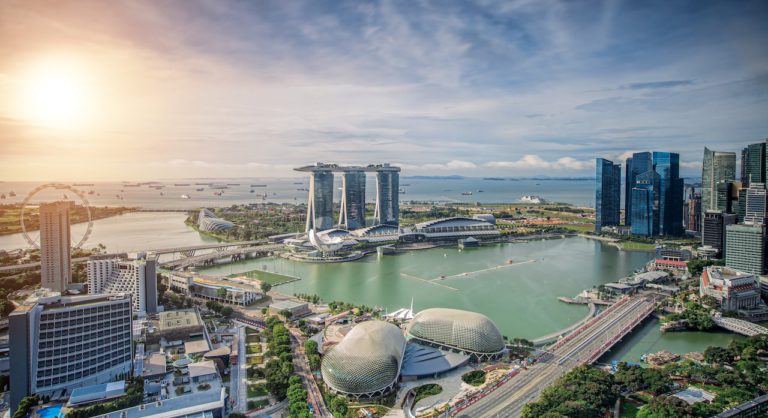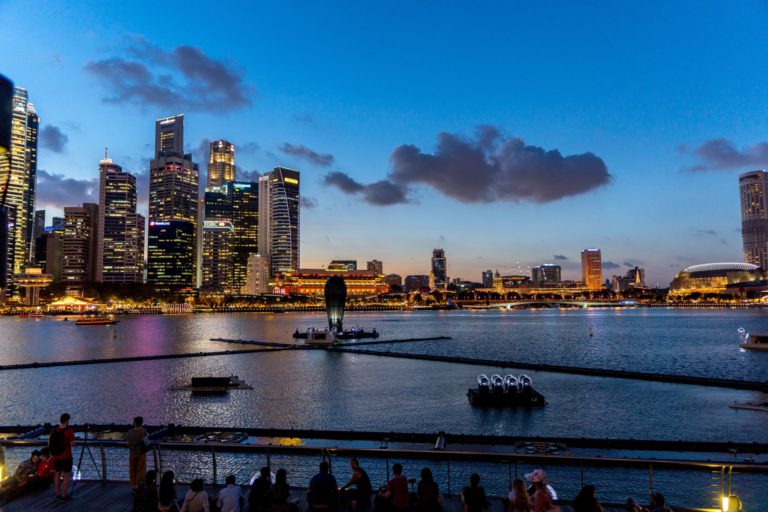The global artificial intelligence (AI) industry has emerged as a transformative force, reshaping the landscape of various sectors and revolutionising the way businesses operate.
AI’s Transformative Role in Business
Characterised by rapid advancements in machine learning, deep learning, and natural language processing (NLP), AI technologies have penetrated diverse fields, including healthcare, finance, manufacturing, and more. As organisations worldwide recognise the potential of AI to enhance efficiency, improve decision-making processes, and drive innovation, the global AI market has experienced exponential growth.
The deployment of AI solutions has become instrumental in solving complex problems, automating routine tasks, and unlocking new opportunities for businesses. With the continuous evolution of AI technologies, the industry is poised to play a pivotal role in shaping the future of digital transformation, creating intelligent systems that can adapt and learn from their environments.
The Global AI Race
Several countries have emerged as global AI frontrunners, leading the way in terms of research, development, and application of AI. Each of these nations has unique strategies and initiatives contributing to their status as leaders in the AI landscape. Below are some of their contributions so far.
Top 5 Countries with Significant AI Contributions
-
China
China has established ambitious plans to become a world leader in AI by 2030. Currently, China has already advanced AI in facial and speech recognition technologies, autonomous vehicles, healthcare technologies such as medical imaging for early detection of diseases, e-commerce algorithms for recommendation systems, quantum technologies, and 5G technologies.
-
United States
The U.S. remains a powerhouse in AI, with major technology companies such as Google, Microsoft, and Amazon leading in AI research and development. The country’s strength lies in its vibrant startup ecosystem, world-class research institutions, and the presence of Silicon Valley as a global technology hub.
Some of U.S’s AI contributions include image and speech recognition via Deep Learning and Neural Networks, AI research and development by tech companies such as Google, Microsoft, Facebook, IBM, and Amazon; Natural Language Processing (NLP) technology such as OpenAI’s GPT series and BERT (Bidirectional Encoder Representations from Transformers), autonomous vehicles especially by trailblazer Tesla; robotics and automation; AI in healthcare; AI hardware and processing units such as graphics processing units (GPUs) and Tensor Processing Units (TPUs) by current market leader NVIDIA; Defense Advanced Research Projects Agency’s (DARPA) AI advancements in defence and security; AI space exploration via autonomous rovers, spacecraft, and robotic systems.
-
Germany
Germany, known for its strong manufacturing sector, is a frontrunner in industrial AI. The country focuses on integrating AI into manufacturing processes for predictive maintenance, quality control, and optimising production processes.
Other AI contributions by Germany are research and academic excellence leading to advancements in machine learning, robotics, and cognitive systems; development of autonomous vehicles and intelligent transportation systems and application of AI in optimising traffic flow and logistics; AI in finance and fintech developing applications in fraud detection, risk management, and customer service; AI in the energy sector for optimising energy consumption, grid management, and renewable energy integration; and development of AI hardware solutions and edge computing technologies.
-
South Korea
South Korea has committed significant resources to AI research and development. Some contributions include robotics and intelligent systems that developed humanoid robots and robotic exoskeletons, with applications ranging from healthcare to manufacturing; smart cities and IoT integration for efficient urban planning, transportation, and energy management; autonomous vehicles development and testing of self-driving cars; AI in education to provide personalised learning experiences, adaptive tutoring, and support for students; cybersecurity and AI defence applications such as threat detection and intelligence analysis; AI in entertainment and gaming such as AI-driven characters, personalised game recommendations; and AI integration with 5G Technology.
-
Japan
Japan’s AI contribution includes robotics and automation has developed humanoid robots showcasing innovations in robotic mobility, interaction, and service applications; AI in Manufacturing producing smart factories for predictive maintenance, quality control, and optimising production processes; AI for Disaster Response used for early detection, monitoring, and mitigation of natural disasters; AI in Agriculture to enhance precision farming and optimise crop management; AI for Social Infrastructure to optimise traffic flow, improve public transportation, and enhance overall urban living conditions; Humanoid and Assistive Robotics designed to provide support to the elderly and individuals with disabilities
Singapore’s Participation in the Global AI Race
Singapore is known to achieve top spots in world rankings in many departments, namely, education, business, and wealth. Similarly, Singapore has taken part in the AI race amongst the world’s best innovative leaders.
A Google Cloud executive has declared that Singapore has the potential to become a global AI hub, citing good partnerships between Singapore’s public and private sectors as the recipe to deliver AI’s potential.
Proximity to Asian AI Powerhouses
Singapore’s proximity to other Asian AI powerhouses namely, China, Japan, and South Korea, has some snowball effects as well, such as:
-
Knowledge and Expertise Exchange
Singapore serves as a hub for knowledge and expertise exchange between these countries. This facilitates collaboration, joint research, and the sharing of best practices in AI development.
-
Market Access
Proximity to these AI powerhouses provides Singaporean companies with easier access to large and diverse markets in China, Japan, and South Korea. This access can lead to increased investment, partnerships, and market expansion opportunities.
-
Talent Pool
Singapore can attract top AI talent from neighbouring countries due to its reputation as a tech-friendly and cosmopolitan city. This influx of talent enhances the local AI ecosystem and fosters innovation.
-
Investment and Funding
The presence of major AI players nearby can attract significant investment and funding to Singaporean AI startups and research institutions. Investors often look to regions with strong AI capabilities, making Singapore an attractive investment haven and readily available funding for AI companies.
-
Regulatory Influence
Singapore’s regulatory framework for AI can be influenced by observing and learning from the policies of neighbouring countries like China, Japan, and South Korea. This can lead to the development of more robust and adaptable regulations for AI technologies.
-
Competitive Advantage
By leveraging its proximity to these AI powerhouses, Singapore can develop a competitive advantage in the Southeast Asian region.
Government’s Role & Push in AI
The Singapore government has established a comprehensive AI strategy to position the country as a leader in AI adoption and development. This strategy includes investment in research and development, fostering local talent, and creating an enabling environment for AI-driven innovation, and more. Below is a breakdown of this initiative.
Investment in Research and Development
The government, along with various agencies and institutions, supports cutting-edge research projects, fostering an environment that encourages breakthroughs in AI technologies. For example, AI researchers from the National University of Singapore (NUS) have developed AiSee, an AI-powered wearable assistive device for the visually impaired identify products while shopping. The technology was first developed in 2018 and has been upgraded since.
Supportive Regulatory Environment
Singapore has established a regulatory framework that facilitates the responsible and ethical development and deployment of AI technologies. Clear guidelines and regulations help build trust in AI systems, attracting businesses to invest and operate in the country.
Collaboration between AI Stakeholders
Collaboration between the government, private sector, and academia is a key strength of Singapore’s AI ecosystem. Public-private partnerships drive innovation, create opportunities for technology transfer, and ensure that advancements in AI are applied across various sectors.
International Collaboration
Singapore actively engages in international collaborations and partnerships with leading AI research institutions and industry players worldwide. This global approach facilitates knowledge exchange, fosters innovation, and enhances Singapore’s standing in the global AI community.
Digital Infrastructure
Singapore boasts a robust digital infrastructure, including high-speed internet connectivity and state-of-the-art data centres. This advanced infrastructure supports the data-intensive requirements of AI applications, allowing for efficient data processing and storage.
Strategic Focus Areas
Singapore focuses on developing AI applications tailored to industry needs, such as finance, healthcare, logistics, and smart city solutions. This sector-specific approach ensures that AI technologies address real-world challenges and contribute to economic growth.
Commitment to Innovation
Singapore fosters an innovation-friendly ecosystem that encourages startups, research institutions, and established companies to experiment with and adopt AI technologies. Innovation hubs and incubators play a vital role in nurturing a culture of experimentation and creativity.
Will Singapore Win the Global AI Race?
Unlike the other AI frontrunners, Singapore does not have much resources, other than its people – both local and foreign. This is the reason why Singapore has chosen a selective open immigration policy – to close the gap in its dwindling workforce and skill gap and propel its economy towards the future. Attracting the best tech professionals from around the world with its Tech.Pass, Singapore is actively pursuing its ambition to win the AI race.
Singapore’s success in the AI race, therefore, would be attributed to its holistic approach, combining government support, investment in research and talent development, a conducive regulatory environment, and active collaboration between private and public stakeholders. This multifaceted strategy positions Singapore as a leading contender in the global AI landscape.







